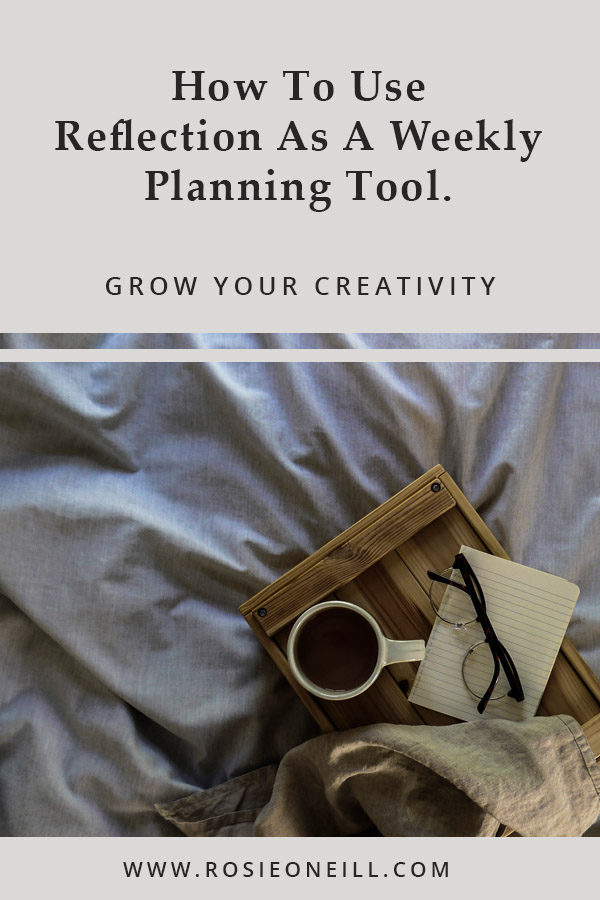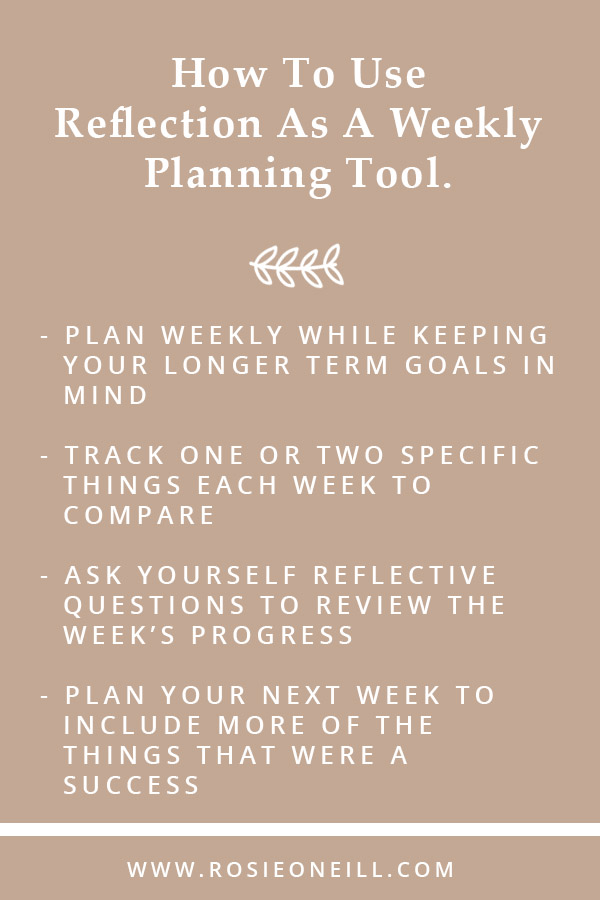HOW TO USE REFLECTION AS A WEEKLY PLANNING TOOL.
When it comes to planning for a creative project - whether that's working towards a specific goal or more simply setting aside that time to hone your craft - putting in place a very strict structure can sometimes work against you.
It can leave you feeling stifled and frustrated, send you off course without realising and even deepen an impending period of creative block.
Choosing a more intuition based method of planning instead can provide a much more mindful way of working that supports your creativity with a less extreme sense of discipline.
While it's true that creativity often needs and even craves a sense of boundary and limitation, we have to build in a certain amount of freedom and flexibility if we want to keep ourselves feeling motivated and full of creative energy.
Reflecting on the week before
Using reflection as a starting point for our planning (and using it regularly), we can stay really closely tuned into our goals and purpose, and quickly correct those little moments where we've inevitably drifted away from them. This self awareness is a really important skill to hone - in simply ploughing down a single path without checking in, we can easily get too far down the wrong one before we look up and realise.
Reflection encourages us to take note of all of our little wins; keeping us present and in the moment, helping us to tap into our enjoyment of the creative process and maintaining a healthy distance from the end result.
In paying attention to (instead of ignoring) the things that didn't go so well, we also get the chance to explore why that might be, and seek a way to turn things around. Reviewing our progress in this way gives us little clues about the things that support or sabotage our creative process so that we can try to limit or increase them respectively.
Reflecting in practice (including some example prompts)
- Reviewing weekly is a good way to get a handle on your day-to-day creative process. It allows you to see the things in your routine that are helping or hindering your progress or flow. But - it works best when you already have a good handle on your longer term goals, purpose or projects. If you're not clear on this, it might be a good idea to have a quiet journaling session and figure out why you want to do a certain creative project, what you're working towards etc...
- Give yourself one or two objective, measurable things to track over the course of a week. For example: a daily wordcount total; total number of writing/painting/art sessions; a list of several set tasks to meet (chapters written, sketchbook pages filled etc). This way you can remove judgement or criticism from your reflection and simply review the numbers. Only got halfway to your wordcount goal? Why is that? Filled double the amount of sketchbook pages you thought you would? Great - why?
- Questions to ask: What action did I take this week towards my creative goals? What action did I avoid taking, and why? At what point in the week did I feel most in flow and happiest in my creativity? At what point in the week did I feel less in flow, sluggish or maybe even blocked? Why was that? If I felt blocked this week, can I uncover what type of block that was, and why (eg: maybe I felt lacking in motivation because I'm afraid to finish my project and show it to others; or maybe I had no inspiration because I felt rushed and under pressure)?
- Use the answers to help shape your planning for the week to come. If you had a great week of progress and creative flow, you should be able to pinpoint why and try to apply that to your new schedule. Likewise, if you fell down on a few goals or felt stuck or blocked for some reason, you should be able to dig into why that was. From there you can start to experiment with adding or shifting things in your plan to try and get things flowing again. Good places to start include: changing the time of day you do your creative work; changing the place you do it in; investigating and implementing the things that help to refuel your creativity (time outdoors, meditation; watching a favourite inspiring film etc).
I would love to hear from you if you feel inspired to try out some of the prompts or tips when you next have a planning session. Please feel free to get in touch at hello.rosieoneill@gmail.com, or tag me on instagram in your planning/journaling photos.
PIN FOR LATER:



